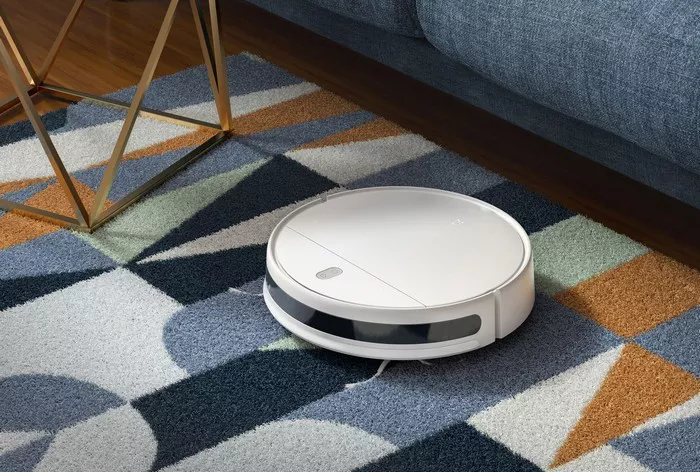Vacuum cleaners are essential tools for keeping our homes clean and free of dust, dirt, and debris. However, it can be frustrating when your vacuum cleaner starts emitting unpleasant odors, making the cleaning process less enjoyable. Understanding why your vacuum cleaner smells is the first step towards resolving this issue and ensuring your home stays fresh and clean.
Common Causes of Vacuum Cleaner Odors
1. Clogged Filters and Dirt Cups: One of the primary reasons for a smelly vacuum cleaner is a buildup of dirt, dust, and debris in the filters and dirt cups. Over time, these particles can accumulate and become trapped, leading to unpleasant odors emanating from the vacuum cleaner.
2. Dirty Brushes and Rollers: The brushes and rollers in your vacuum cleaner can also harbor dirt and debris, especially if you regularly vacuum pet hair or large amounts of dust. When these components become dirty, they can emit foul odors as they continue to agitate and pick up debris from your floors.
3. Mold and Mildew Growth: If moisture gets trapped in your vacuum cleaner, it can create the perfect environment for mold and mildew to thrive. This is particularly common in bagless vacuum cleaners where moisture from wet spills or high humidity levels can accumulate, leading to mold and mildew growth and resulting in a musty odor.
4. Clogged Air Ducts and Hose: Over time, dust and debris can also accumulate in the air ducts and hose of your vacuum cleaner, restricting airflow and causing the vacuum cleaner to emit a foul smell. This can be exacerbated if you vacuum up wet or damp materials, as moisture can promote the growth of mold and mildew within the ducts.
5. Lack of Maintenance: Regular maintenance is crucial for keeping your vacuum cleaner in optimal condition and preventing unpleasant odors. Failure to clean and maintain your vacuum cleaner regularly can lead to a buildup of dirt, debris, and odor-causing bacteria, resulting in a smelly appliance.
Solutions to Eliminate Vacuum Cleaner Odors
1. Clean or Replace Filters: Regularly clean or replace the filters in your vacuum cleaner according to the manufacturer’s recommendations. This will help ensure optimal airflow and prevent the buildup of dirt and debris that can cause odors.
2. Empty and Clean Dirt Cups: After each use, empty the dirt cups of bagless vacuum cleaners and clean them thoroughly with soap and water. Allow them to dry completely before reassembling the vacuum cleaner to prevent mold and mildew growth.
3. Clean Brushes and Rollers: Remove any hair, string, or debris wrapped around the brushes and rollers of your vacuum cleaner. Use scissors or a brush to dislodge stubborn debris, and wipe the components clean with a damp cloth.
4. Inspect and Clean Air Ducts and Hose: Regularly inspect the air ducts and hose of your vacuum cleaner for any obstructions or buildup of dirt and debris. Use a vacuum cleaner attachment or a long, flexible brush to remove any blockages and ensure proper airflow.
5. Deodorize the Vacuum Cleaner: To eliminate stubborn odors, consider deodorizing your vacuum cleaner using natural ingredients such as baking soda or white vinegar. Sprinkle baking soda inside the dirt cup or dust bag, or mix vinegar with water and spray it onto the filters and other components before allowing them to dry thoroughly.
Conclusion
A smelly vacuum cleaner can make cleaning a less-than-pleasant experience, but understanding the causes of these odors and implementing effective solutions can help keep your home smelling fresh and clean. By regularly cleaning and maintaining your vacuum cleaner, you can ensure optimal performance and prolong its lifespan while enjoying a cleaner and healthier living environment.
FAQs
Q1. How often should I clean or replace the filters in my vacuum cleaner?
A1: It’s recommended to clean or replace the filters in your vacuum cleaner every 1-3 months, depending on usage and the manufacturer’s recommendations. However, if you have pets or allergies, you may need to clean or replace them more frequently to maintain optimal airflow and filtration.
Q2. Can I use air fresheners or carpet deodorizers in my vacuum cleaner to eliminate odors?
A2: While it may be tempting to use air fresheners or carpet deodorizers in your vacuum cleaner, it’s generally not recommended as these products can leave behind residue that can clog filters and affect the performance of your vacuum cleaner. Instead, opt for natural deodorizing methods such as baking soda or white vinegar.
Q3. How can I prevent mold and mildew growth in my vacuum cleaner?
A3: To prevent mold and mildew growth in your vacuum cleaner, avoid vacuuming up wet or damp materials, and empty and clean the dirt cups or dust bags regularly to remove any moisture. Additionally, ensure that the vacuum cleaner is stored in a dry environment when not in use, and consider using a dehumidifier if humidity levels are high in your home. Regular maintenance and proper airflow will also help prevent mold and mildew growth.

